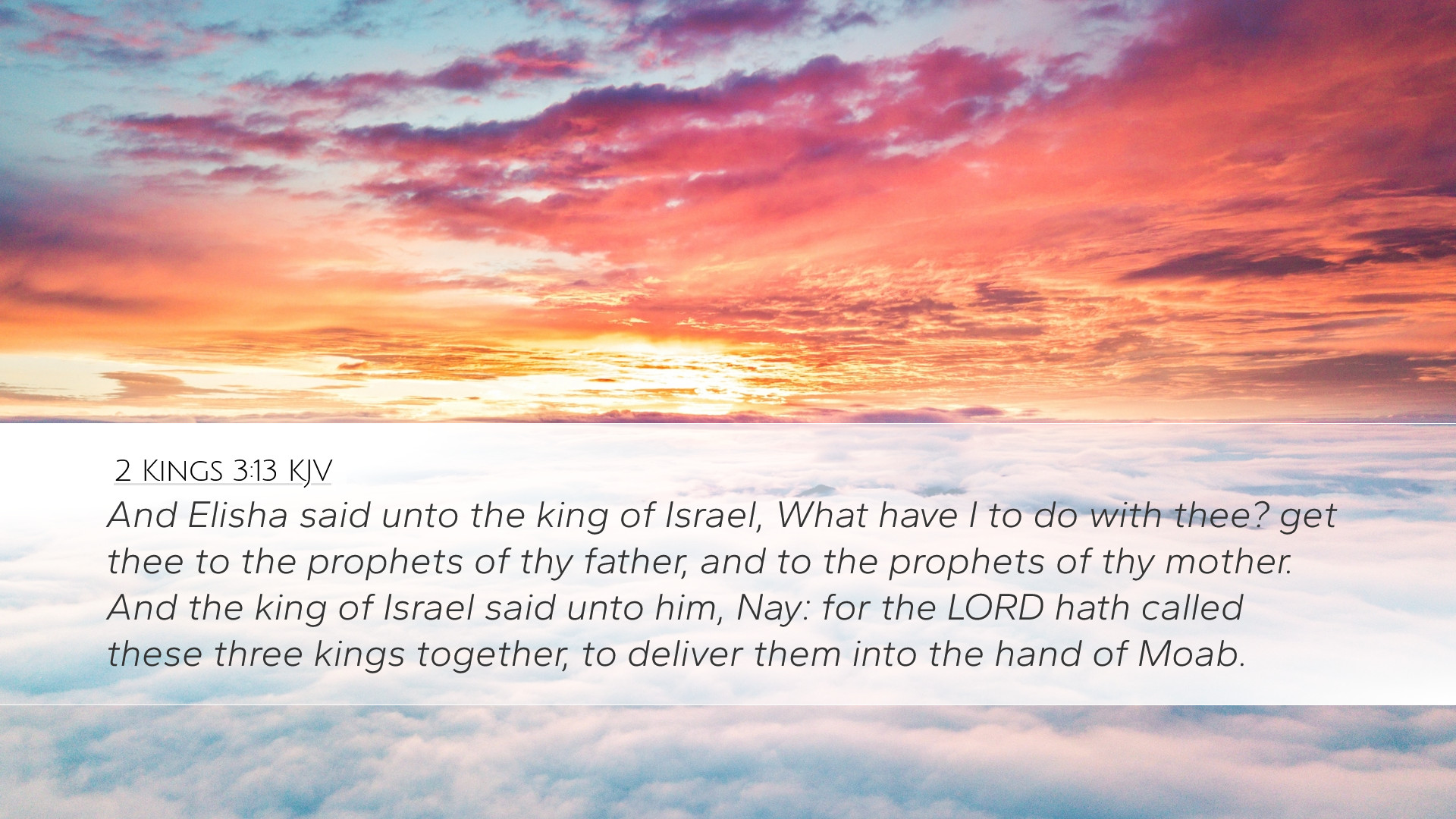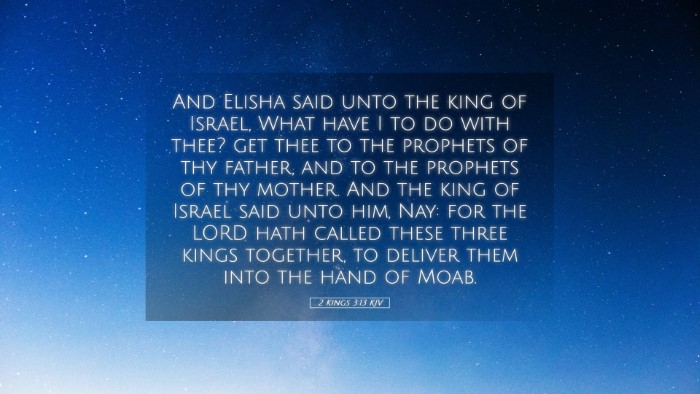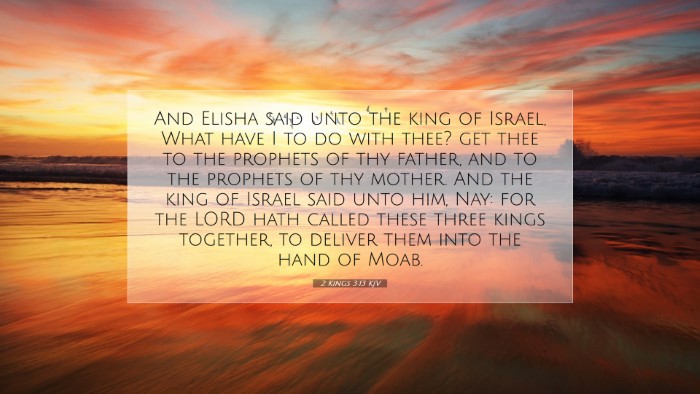Commentary on 2 Kings 3:13
Bible Verse: "And Elisha said unto the king of Israel, What have I to do with thee? get thee to the prophets of thy father, and to the prophets of thy mother. And the king of Israel said unto him, Nay; for the Lord hath called these three kings together, to deliver them into the hand of Moab."
Contextual Overview
This verse occurs within the narrative of the coalition of three kings: Jehoram of Israel, Jehoshaphat of Judah, and the king of Edom, who came together to face the threat posed by Moab. The context is crucial as it illustrates the moral and religious dynamics of leadership during this tumultuous period in Israel's history.
Elisha's Response
Elisha's reply to the king of Israel reflects both his prophetic authority and the spiritual climate of the time. His initial refusal to engage with Jehoram demonstrates a principle of prophetic integrity. Elisha identifies the king's reliance on his father's and mother's prophets rather than seeking the true God, indicating a spiritual deviation:
- Calling Out Apostasy: Elisha’s words serve as a rebuke to Israel's king for consulting other sources rather than the God of Israel. This reflects the importance of loyalty to Yahweh amidst the nation's idolatry.
- Recognition of Divine Silence: By turning away from Jehoram, Elisha signals that divine favor is not guaranteed, especially when the leadership of Israel neglects worshiping Yahweh.
The Role of Prophets
The mention of “the prophets of thy father, and to the prophets of thy mother” highlights the historical roots of idolatrous worship in Israel:
- Historical Idolatry: This reflects the influence of Ahab and Jezebel, whose religious practices propagated Baal worship. Jehoram’s appeal to prophets connected to such practices illustrates the tension in Israel's spiritual life.
- Prophetic Authority: Elisha’s independence underscores the role of prophets as individuals called directly by God, wielding authority to challenge both monarchy and the people's religious fidelity.
The King's Desperation
Jehoram's desperate response to Elisha reveals the gravity of the situation the coalition faced against Moab. His phrase “Nay; for the Lord hath called these three kings together, to deliver them into the hand of Moab” indicates his belief in divine sovereignty:
- Recognition of God’s Hand: Though Jehoram's character is flawed, he acknowledges that the situation is dictated by God's will. This recognition demonstrates a persistent hope for divine intervention.
- Crisis as a Catalyst: It is often in crisis that leaders turn to the divine, suggesting that extremities can lead to spiritual reflection and a seeking of truth.
Theological Implications
Elisha’s interaction with Jehoram contributes significantly to our understanding of divine guidance:
- God’s Sovereignty: The notion that God orchestrates events, even those involving flawed leaders, is foundational. It speaks to God’s overarching purpose and ability to use unfortunate circumstances for His glory.
- Prophetic Integrity: The refusal of Elisha to prop his authority by engaging a king in false worship illustrates the necessity for integrity in the prophetic office, reminding leaders and believers to consult the true Word of God.
Practical Applications
This verse encourages reflection on several key areas relevant for modern readers, particularly for pastors, students, and theologians:
- Adhering to True Prophecy: In contemporary contexts rife with varied sources of guidance, believers are reminded to pursue authentic spiritual counsel rooted in God's Word.
- Leadership and Accountability: The dynamics of leadership should prompt those in positions of authority to align with God’s will, rejecting worldly influences even in times of crisis.
- Prayer in Crisis: The situation illustrates the significance of turning to God in desperation, highlighting prayer and supplication as vital components of seeking divine rescue.
Conclusion
In conclusion, 2 Kings 3:13 serves as a poignant reminder of the importance of prophetic integrity and spiritual allegiance. Elisha's refusal to entertain the impious avenues sought by Jehoram speaks volumes about fidelity to God's covenant and the necessity of true worship. The lessons derived from this encounter resonate through time, challenging leaders and believers alike to align their hearts with the will and voice of God.


